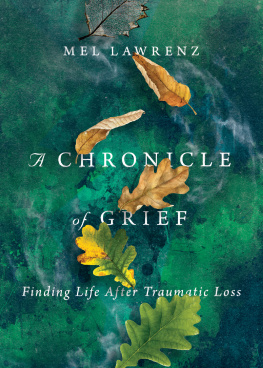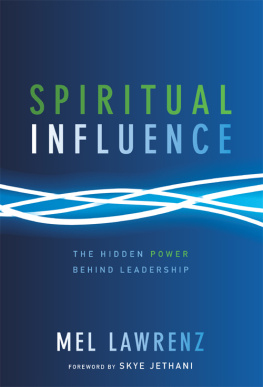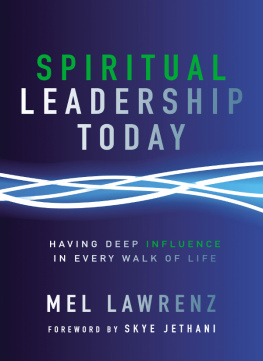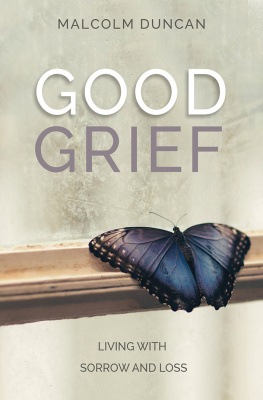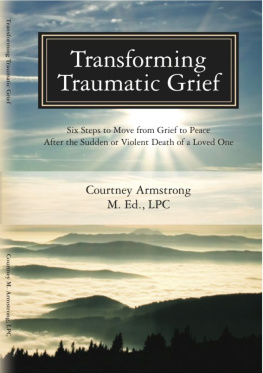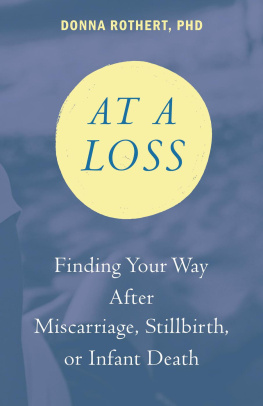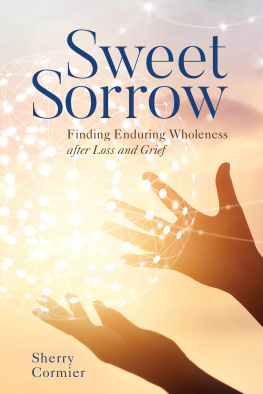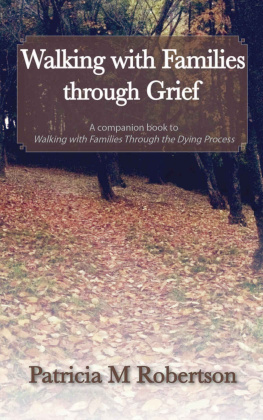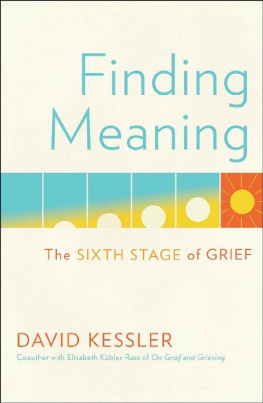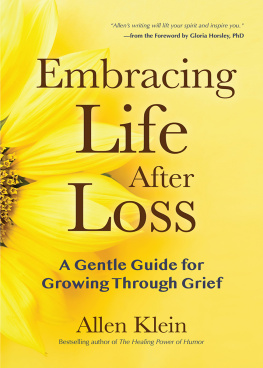Sommaire
Pagination de l'dition papier
Guide
MEL LAWRENZ
A CHRONICLE
of GRIEF
Finding Life After Traumatic Loss
InterVarsity Press
P.O. Box 1400, Downers Grove, IL 60515-1426
ivpress.com
2020 by Melvin Lawrenz
All rights reserved. No part of this book may be reproduced in any form without written permission from InterVarsity Press.
InterVarsity Pressis the book-publishing division of InterVarsity Christian Fellowship/USA, a movement of students and faculty active on campus at hundreds of universities, colleges, and schools of nursing in the United States of America, and a member movement of the International Fellowship of Evangelical Students. For information about local and regional activities, visit intervarsity.org.
All Scripture quotations, unless otherwise indicated, are taken from The Holy Bible, New International Version, NIV. Copyright 1973, 1978, 1984, 2011 by Biblica, Inc. Used by permission of Zondervan. All rights reserved worldwide. www.zondervan.com. The NIV and New International Version are trademarks registered in the United States Patent and Trademark Office by Biblica, Inc.
While any stories in this book are true, some names and identifying information may have been changed to protect the privacy of individuals.
Photo of Eva Lawrenz used courtesy of the author
Cover design and image composite: David Fassett
Images: autumn oak leaf: assalve / E+ / Getty Images
blue sky: John Oneill / EyeEm / Getty Images
green oak leaves: Creativ Studio Heinemann / Getty Images
leaf skeleton: Kenny Williamson / Moment Collection / Getty Images
watercolor of a leaf: cat_arch_angel / iStock / Getty Images Plus
ISBN 978-0-8308-3922-3 (digital)
ISBN 978-0-8308-3760-1 (print)
This digital document has been produced by Nord Compo.
This book is dedicated
to those who have suffered
devastating loss and are
hoping to surviveand
something more.
TRAUMA
I was in an unpleasant discussion at work when my cell phone sounded that simple and unobtrusive ding that meant a text message had arrived. A few minutes later I slipped the phone out of my pocket and read: Eva not breathing. Pray.
What I was looking at made no sense. I stared at the screen. My brain locked up. I felt a wave of dread wash over my body. And then adrenaline. I ducked into an empty room and used my phone to call my wife and learned that my thirty-year-old daughter was in an ambulance being whisked away to a hospital, paramedics applying resuscitation.
This is a survival story.
The worst thing that happened in my early life was the death of my father when I was four. Then, when I was a father of a high school age son who was in a near-fatal auto accidentthat was the worst.
But then came the unthinkable worst, on that early June day our beautiful daughter collapsed and died, and all the tortures that followed. Life became even more complicated in the months that followed when I had a serious accident, and then my mother died. But the worst, the worst of the worst, was losing our daughter. The fourteen-month window when all this happened seemed too much to bear.
My first thought on that June day was that we had entered a harsh new reality. I had no say in this reality. The ground had dropped away directly in front of where I was standing, and our daughter had disappeared.
How can this be? What do we do now? What will happen to us?
Since that time I constantly think about the people around me who have gone through searing loss. For some, the death of a loved one; for others, divorce, being betrayed, having a dreadful disease, losing a career, being assaulted or abused, or any other experience that is overwhelming. There is so much we have to survive, and hopefully do better than just survive. How we need other people who care. How we need to be able to access our faith in God, however that works out.
I look around now and I see people everywhere who are suffering some kind of excruciating loss, and they are having a hard time figuring out what to do.
Facing traumatic loss is about keeping our sanity and taking care of those who depend on us, all the while deciding how we are going to face this new unwelcome reality. I learned at so many points that I had to look straight at the loss or I could not find comfort. On the other hand, surviving also meant using distractions and diversions in order to interrupt ascending panic, especially in those early days. We do what we have to do. Its not wrong if we have to leave the lights or television on in order to sleep. Its okay to interrupt obsessive thoughts. Its important to be honest with people who want to know how we are doing.
To unload the burden, I wrote a few paragraphs each month and sent them to friends or posted them on social media. I was surprised that so many people said this writing was helpful to them. Some said it helped them know they are normal in their own reactions to a terrible loss. Others found practical help. And still others just wanted to know there is hope. No one survives on their own.
In that first year I found that writing something, about once a month, and sharing it with others somewhat lessened the weight that was smashing me into the ground. I wrote just to get some of the pain off my chest. This was not an exercise in self-reflection or the discipline of journaling. It was about survival. Taking the edge off the pain. Crying out. Proclaiming love through confessing devastation. A search for meaning, I suppose.
A lot of people responded to me and my family by suffering with us, which is, of course, the literal meaning of sympathy. This is the height of compassion, when someone goes beyond feeling sorry, in some mysterious way suffering with us.
I kept thinking about all the people slain by the pain of traumatic loss who may not know what to do to get through the most difficult days. Who do not find many sympathetic voices around them or who feel some external necessity to feel or behave a certain way. When the dam broke one day two years later and I started writing this book, I was thinking about all of us who know that life goes on but dont understand how when life itself seems cut off.
I hope there is something here to help if you or a loved one are plunged into survival mode. The chapters that follow include the experiences and some epiphanies that happened in the first three years after our lossparticularly the first twelve months. I recognize that three years into our experience is not a long way, and that we will know so much more five years and ten years from now. But I wanted to write while these experiences were fresh in my mind.
Traumatic loss has a way of slowing time down. Now, three years later, time moves along at a more or less normal pace. But six months after our loss, each week felt like a month. In the early weeks some days felt like they would drag on forever. In the first days time seemed suspended.
For context, here is just a bit about me and my family. Ingrid and I were married when we were quite young, but it was twelve years before we had our first child, Eva. Our son, Christopher, came along two years later. Ingrid and I both experienced hardship and loss as kids, and so when she became a social worker and a professional counselor and I, a pastor, we felt fairly prepared to deal with the core issues of struggles in life. We both have loved doing our work, though helping people with major life problems is difficult when our own family faces one personal challenge after another. We dealt with health issues Ingrid had and a near-fatal auto accident Christopher came through, but when Eva died we came to a crossroads. Would we survive or not?

